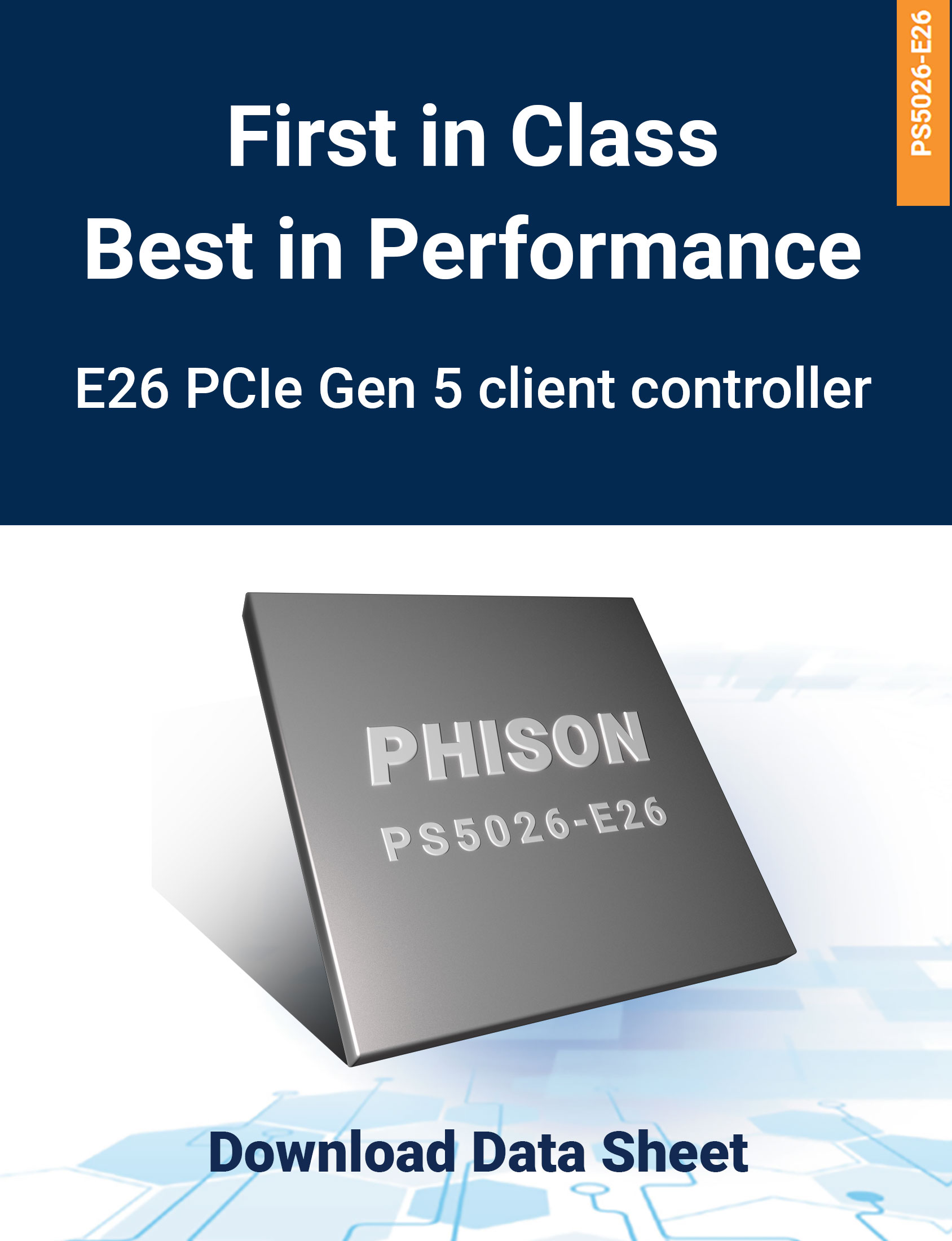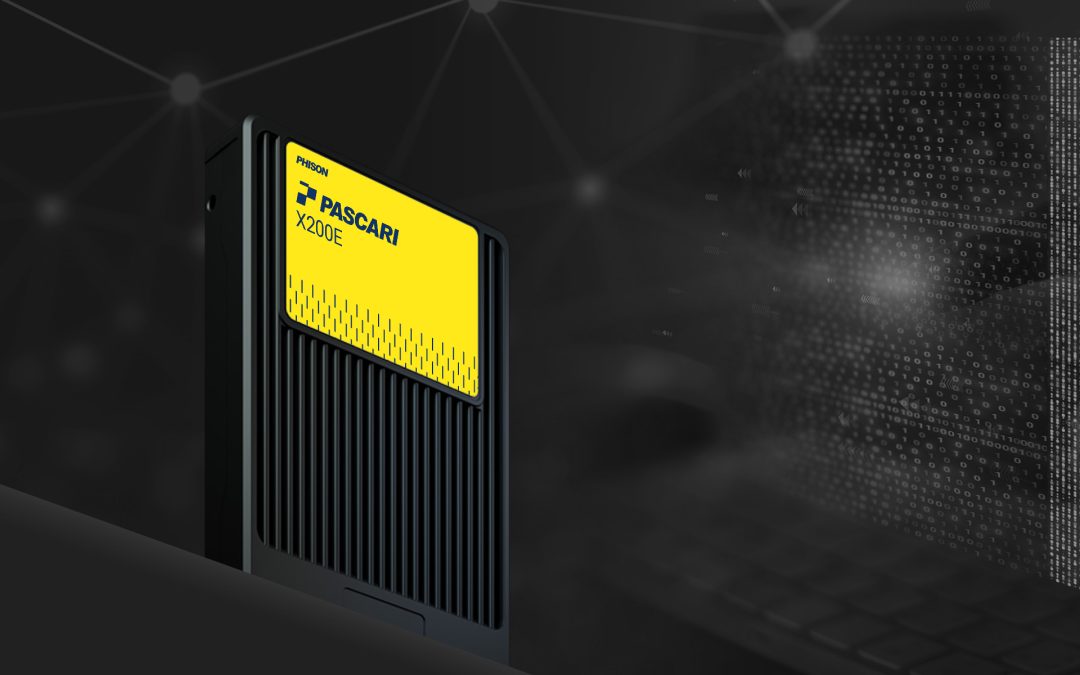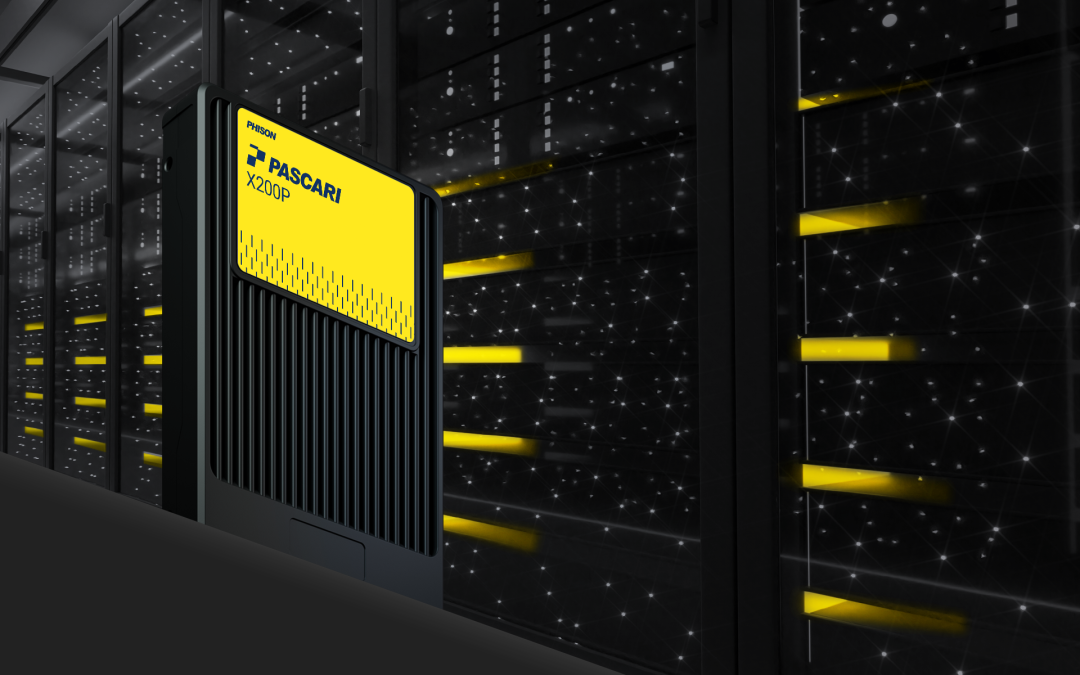San Jose, Calif. June 22, 2021 – When solid state drives were first manufactured, they were designed using form factors similar to hard disk drives. But, because they are made from flash memory, SSDs can be designed in various form factors that best take advantage of the unique needs of respective client, hyperscale and enterprise compute environments. The form factor that is best suited for rack storage over the current industry-standard M.2 drive is the E1.S, according to experts at Phison Electronics Corp. (TPEX: 8299), a global leader in NAND flash controller integrated circuits and storage solutions. Phison’s own E1.S SSD with the world’s highest capacity storage is coming to market soon.
When first released, the M.2 form factor was popular in hyper-scale data centers due to its small size, low-cost structure, flexibility and scalability of multiple drives per server. But the M.2 form factor is not hot-pluggable and typically a challenge to service with the SSD installed on an internal motherboard socket. The M.2 form factor dimensions are also not ideal to fully utilize the space available in a 1U rack height (1.75″) for storage capacity.
A new form factor in the Enterprise SSD market is quickly becoming adopted in rack storage called Enterprise and Data Center SSD Form Factors, or EDSFF for short. The most popular of these new form factors is the E1.S, a flexible and power-efficient building block designed for hyper-scale, enterprise compute nodes, and mass storage. The E1.S form factor solves the limitations of the M.2 form factor while still maintaining a small foot print.
The reasons to adopt E1.S for rack storage include:
- Size – The E1.S is designed to fit perfectly within a 1U height rack storage server, something the M.2 2280 form factor was not designed to do. Varying thickness options defined within the E1.S standard allow for different heat sink cases, another critical difference between the E1.S and the M.2.
- Thermal Efficiency – By including heat sinks in the E1.S design, the problem of overheating is largely avoided. Typically running SSDs at the highest performance read and write speeds requires high levels of power, which turns into heat as the drive operates. The heat sinks serve as al means to dissipate the power while allowing the SSD to continue operating at peak performance.
- Greater Storage Capacity – The long length of 111.49 mm offers more space on the printed circuit board to fit more NAND package chips, enabling higher capacity SSDs and provides more capacity per volume of space.
- Easier Serviceability – The ability to be hot-pluggable and inclusion of LED health indicators make identifying and replacing failed E1.S SSDs without powering off the system something that can’t be done with M.2s.
Phison is an active participant in the Storage Networking Industry Association (SNIA) and the Open Compute Project NVMe Cloud SSD specifications that include E1.S SSDs and future PCIe Generation definitions. Phison is proud of its engineering R&D investments to provide leadership products to its customers, some of whom are the largest NAND wafer FAB and SSD manufacturers in the world, with first to market technologies and best-in-class feature sets for the E1.S form factor.
“EDSFFs, including the E1.S, offer advantages over traditional SSD form factors in capacity, scalability, performance, serviceability, and thermal and power management,” said Sebastien Jean, CTO of Phison Electronics. “While the M.2 form factor has served notably in data center environments, the fact that it’s not hot-pluggable and various servicing challenges make it less than ideal in rack storage situations. It should be no surprise that all the leading SSD manufacturers, Phison included, have shown demonstration models of E1.S SSDs that will enable a new generation of higher capacity and performance rack storage servers.”
About Phison
Phison Electronics Corp. (TPEX:8299) is a global leader in NAND Flash controller integrated circuits and storage solutions for the consumer, industrial and enterprise markets. Phison provides various services from controller ASIC and firmware design, system integration, IP licensing, and total turnkey solutions, covering applications across SSD (PCIe/SATA/PATA), eMMC, UFS, SD, and USB interfaces. Phison is an active member of industry associations, including the Board of Directors for SDA, ONFI, UFSA, and a contributor for JEDEC, PCI-SIG, MIPI, NVMe, and IEEE-SA. Visit our blog: www.phisonblog.com
###
Media Relations Contact:
Judy Smith
JPR Communications
judys@jprcom.com
Phison product inquiries:
press_americas@phison.com










